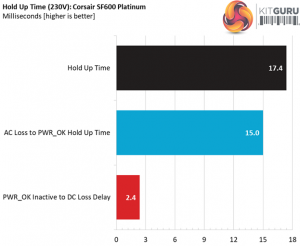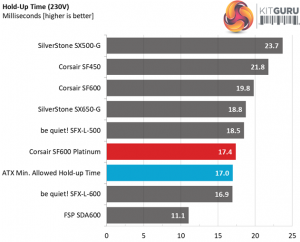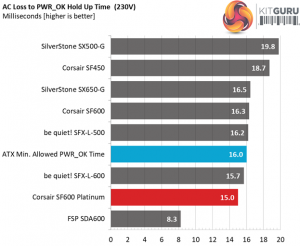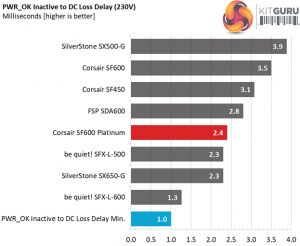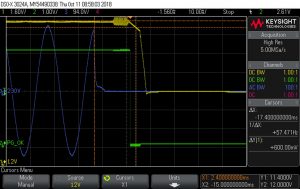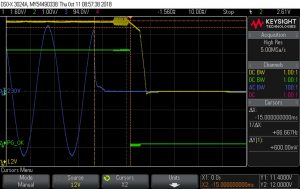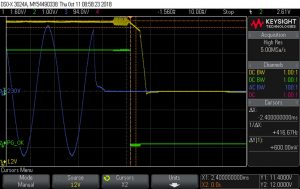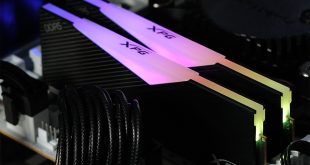To learn more about our PSU tests and methodology, please check out How We Test Power Supply Units.
Primary Rails And 5VSB Load Regulation
Load Regulation testing is detailed here.
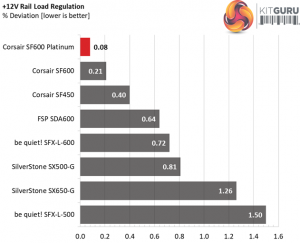
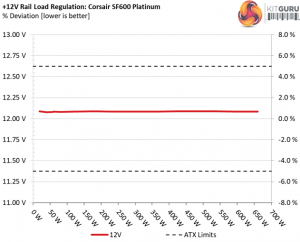
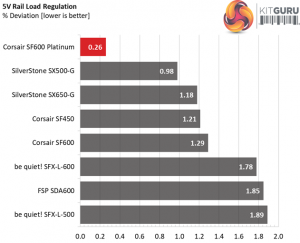
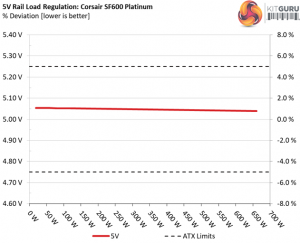
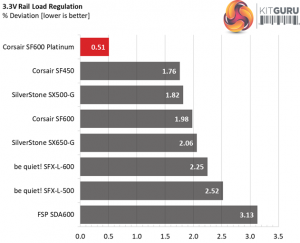
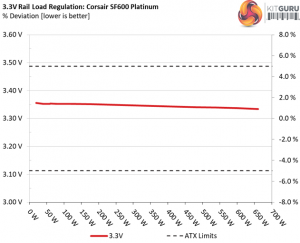
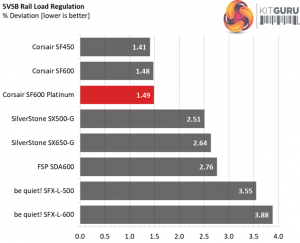
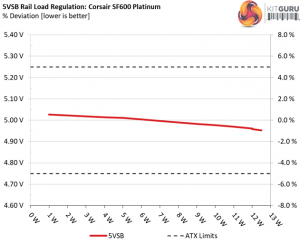
Hold-Up Time
Our hold-up time tests are described in detail here.
The oscilloscope screenshots that we took during the hold-up time measurements:
The hold-up time is over 17ms and the power ok signal is accurate, yet lower than 16ms. The main problem here is the high voltage overshoot at +12V right before the power ok signal drops to zero. This is a short period but the +12V oscillations are notable. Nonetheless, the ATX spec allows for up to 10% above the nominal voltage, meaning 13.2V, and in this case clearly the +12V rail doesn't even go close to that.
Inrush Current
For details on our inrush current testing, please click here.
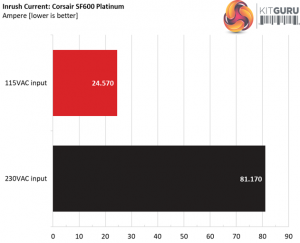
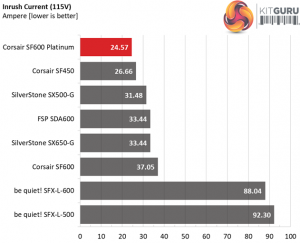
The inrush current with 115V is low. With 230V we get a high reading though.
Load Regulation And Efficiency Measurements
The first set of tests reveals the stability of the voltage rails and the units’s efficiency. The applied load equals (approximately) 10 to 110 percent of the power supplies maximum load in increments of 10 percentage points.
We conducted two additional tests.
During the first, we stressed the two minor rails (5V and 3.3V) with a high load, while the load at +12V was only 0.1A. This test reveals whether a power supply is compatible with Intel’s C6/C7 sleep states or not. In the second test, we determined the maximum load the +12V rail could handle with minimal load on the minor rails.
| Test # | 12V | 5V | 3.3V | 5VSB | DC/AC (Watts) | Efficiency | Fan Speed (RPM) | PSU Noise (dB[A]) | Temps (In/Out) | PF/AC Volts |
| 1 | 3.185A | 1.980A | 1.966A | 0.998A | 60.090 | 86.236% | 0 | <6.0 | 43.89°C | 0.960 |
| 12.085V | 5.053V | 3.354V | 5.011V | 69.681 | 40.16°C | 115.06V | ||||
| 2 | 7.354A | 2.969A | 2.952A | 1.199A | 119.767 | 90.292% | 0 | <6.0 | 44.75°C | 0.959 |
| 12.085V | 5.052V | 3.352V | 5.004V | 132.644 | 40.73°C | 115.06V | ||||
| 3 | 11.886A | 3.467A | 3.432A | 1.401A | 179.676 | 91.603% | 0 | <6.0 | 46.15°C | 0.975 |
| 12.087V | 5.050V | 3.351V | 4.997V | 196.146 | 41.53°C | 115.05V | ||||
| 4 | 16.423A | 3.960A | 3.941A | 1.603A | 239.680 | 92.001% | 1369 | 15.3 | 41.71°C | 0.984 |
| 12.086V | 5.049V | 3.349V | 4.990V | 260.518 | 46.84°C | 115.05V | ||||
| 5 | 20.625A | 4.955A | 4.931A | 1.806A | 299.769 | 92.019% | 1372 | 15.3 | 42.20°C | 0.989 |
| 12.085V | 5.048V | 3.347V | 4.983V | 325.767 | 47.68°C | 115.05V | ||||
| 6 | 24.827A | 5.946A | 5.920A | 2.010A | 359.866 | 91.799% | 1518 | 18.7 | 42.69°C | 0.992 |
| 12.086V | 5.046V | 3.345V | 4.976V | 392.017 | 48.89°C | 115.05V | ||||
| 7 | 28.993A | 6.939A | 6.910A | 2.214A | 419.576 | 91.039% | 1700 | 21.7 | 43.19°C | 0.993 |
| 12.088V | 5.045V | 3.343V | 4.969V | 460.874 | 50.55°C | 115.05V | ||||
| 8 | 33.230A | 7.933A | 7.902A | 2.419A | 480.092 | 90.549% | 1963 | 25.7 | 43.75°C | 0.994 |
| 12.088V | 5.043V | 3.341V | 4.961V | 530.200 | 51.53°C | 115.04V | ||||
| 9 | 37.798A | 8.432A | 8.385A | 2.421A | 539.418 | 90.064% | 2436 | 32.2 | 44.25°C | 0.995 |
| 12.088V | 5.042V | 3.339V | 4.958V | 598.930 | 52.32°C | 115.04V | ||||
| 10 | 42.438A | 8.930A | 8.900A | 2.525A | 600.116 | 89.455% | 2968 | 37.6 | 45.02°C | 0.996 |
| 12.086V | 5.040V | 3.337V | 4.952V | 670.861 | 53.62°C | 115.04V | ||||
| 11 | 47.408A | 8.933A | 8.908A | 2.526A | 660.140 | 88.860% | 3358 | 40.4 | 46.55°C | 0.996 |
| 12.085V | 5.039V | 3.334V | 4.949V | 742.897 | 55.93°C | 115.04V | ||||
| CL1 | 0.139A | 14.003A | 14.000A | 0.000A | 119.409 | 86.133% | 1076 | 9.0 | 42.05°C | 0.962 |
| 12.102V | 5.054V | 3.354V | 5.014V | 138.633 | 47.90°C | 115.06V | ||||
| CL2 | 50.010A | 1.002A | 0.998A | 1.000A | 617.884 | 90.002% | 2896 | 36.4 | 45.00°C | 0.996 |
| 12.088V | 5.039V | 3.338V | 4.982V | 686.525 | 53.37°C | 115.04V |
The load regulation at +12V is super tight, while on the minor rails is among the best we have measured in a SFX unit. Great Wall did a marvelous job in this platform under Corsair's strict guidance of course, since for quite some time now Jon Gerow (aka Jonnyguru) is Corsair's director of PSU engineering.
The unit easily meets the 80 PLUS Platinum requirements even under sky high operating temperatures, which apply a far heavier stress on a small form factor PSU, compared to an ATX one.
Despite the higher than 40°C ambient, the fan doesn't spin during the first three tests, while it operates at very low speeds till the 90% load test. We have to push this product beyond its limits to make the fan rotate at its full speed, where the output noise barely exceeds 40 dB(A). All in all, the fan speed profile is highly relaxed.
 KitGuru KitGuru.net – Tech News | Hardware News | Hardware Reviews | IOS | Mobile | Gaming | Graphics Cards
KitGuru KitGuru.net – Tech News | Hardware News | Hardware Reviews | IOS | Mobile | Gaming | Graphics Cards
